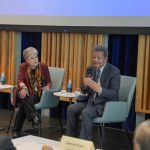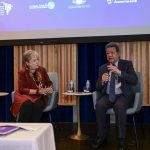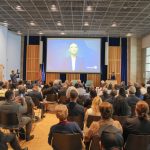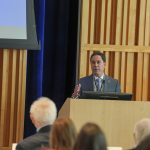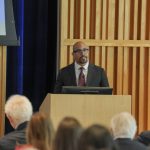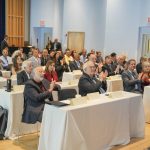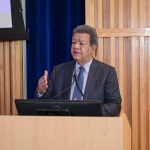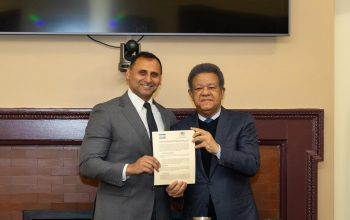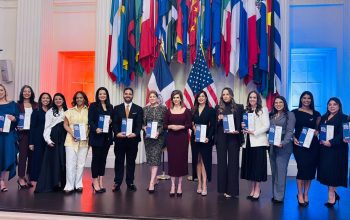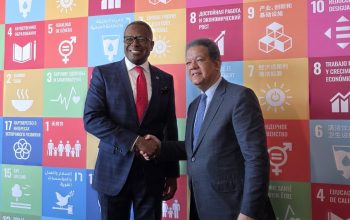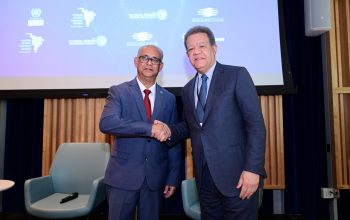news
The VII Global Forum on “Latin America and the Caribbean 2025” Opens in New York with a Call to Analyze the Region’s Economic and Geopolitical Challenges
September 24, 2025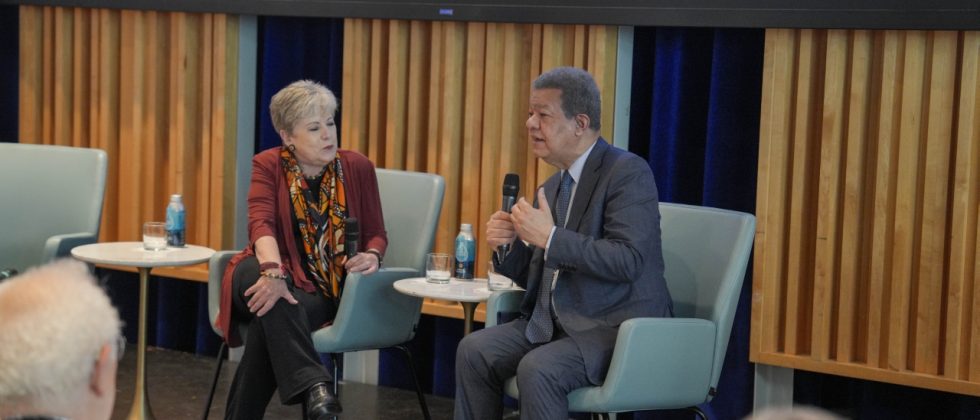
The VII Global Forum on “Latin America and the Caribbean 2025” successfully opened in New York City, at Columbia University. The annual event was organized by Funglode and GFDD. Former Dominican President Leonel Fernández highlighted its importance, especially in light of the existing U.S.-China rivalry. Panelists discussed economic tensions and the need for strategies to improve growth in Latin America.
New York, September 24, 2025 – The Forum’s main goal was to reflect on the current changes impacting the global economy and their impact on Latin America and the Caribbean. The “Latin America and the Caribbean 2025” opened at Columbia University, organized by the Global Foundation for Democracy and Development (Funglode) and the Global Foundation for Democracy and Development (GFDD).
During opening remarks, the former President of the Dominican Republic and President of Funglode/GFDD, Dr. Leonel Fernández, highlighted the importance of the Forum as a space to carry out a pluralistic international dialogue marked by the rivalry which currently exists between the United States and China.
In his remarks. Fernández congratulated Dominican economist Andy Dauhajre, president of the Economy and Development Foundation, for his statements on U.S. economic policies and their impact on the on-going competition with China. “It puts us precisely in the perspective of this new international rivalry and the impact it will have on the future of our region,” noted the president of FUNGLODE.
The Forum continued with a presentation by Bolivian economist George Gray Molina, Senior Advisor to the United Nations Development Program (UNDP), who warned of the risks facing the U.S. economy within the context of tariffs and geopolitical tensions: “The United States is debating the possibility of a recession or a resurgence of inflation, which constitutes a narrow corridor for its macroeconomic policies,” he highlighted.
Gray Molina emphasized that, despite trade restrictions, China maintains a surplus of US$1.2 trillion, reflecting the strength of its global trade structure.
Dauhajre also stated that the current U.S. administration’s tax and immigration measures could end up benefiting China by taxing local companies that hire foreign talent in technological areas. He also highlighted the growing competitiveness of the Chinese automotive industry and the Asian giant’s advances in the Artificial Intelligence sector. He also emphasized on the control of key inputs such as data, chips, and electricity. “If we want to compete in that arena, we must foster greater integration with Silicon Valley and the automotive industry,” he warned.
Participating panelists agreed that Latin America is lagging behind other emerging economies in terms of economic growth. While developing markets are averaging a 4% growth, the region is barely reaching a 1.5% growth increase, which requires new strategies for regional integration and productive diversification.
In its first day, the Forum’s focus was on “The Global and United States Economies in 2025: Trends, Challenges, and Regional Consequences,” laying the groundwork that would also address the Latin American political landscape, the Latino vote in the United States, immigration, and the impact of Artificial Intelligence on democracy.”
The Forum’s first day, held in New York City, led the way to a series of intense debates, consolidating its position as an international benchmark for the analysis of the region’s challenges and opportunities in the changing global landscape.

